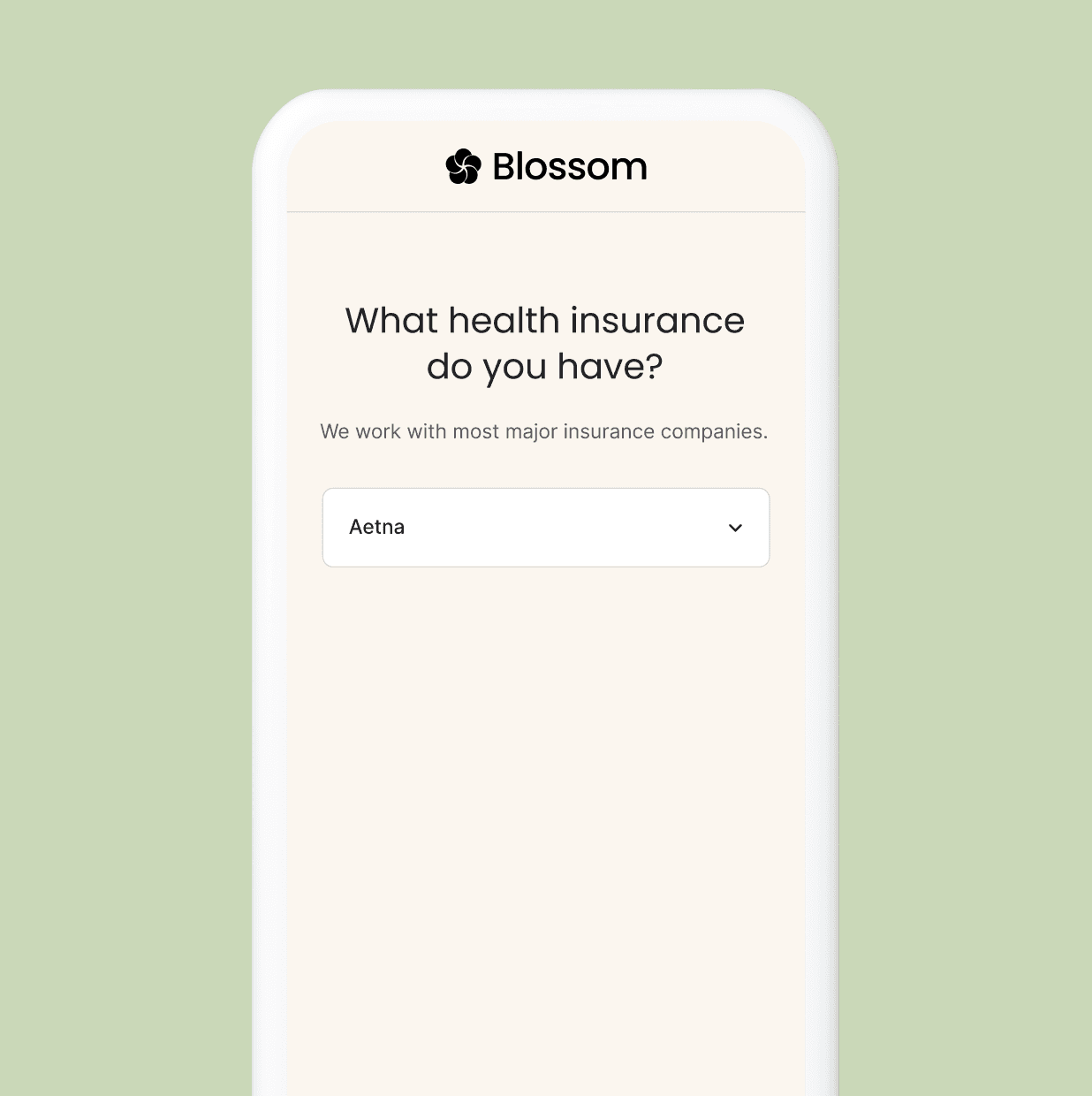Most patient copays $0-$22
Care that’s covered
All our psychiatrists take insurance.
Flexible Scheduling
Virtual visits make showing up easy.
Responsible prescribing
Medication, only as needed.
The core mental health conditions we treat.
What is Depression?
Depression, also called major depressive disorder, is a mental health condition characterized by persistent feelings of sadness, hopelessness, and loss of interest in activities once enjoyed. Depression affects how you feel, think, and handle daily activities, and it involves changes in brain chemistry and function.
Unlike temporary sadness or grief that everyone experiences, clinical depression lasts for at least two weeks and significantly impairs your ability to function at work, school, or in relationships. Depression is not a sign of weakness or something you can simply "snap out of"—it's a legitimate medical condition requiring treatment.
When you have depression, your brain's neurotransmitter systems—particularly serotonin, norepinephrine, and dopamine—function differently. These chemical imbalances affect mood regulation, energy levels, motivation, and the ability to experience pleasure. Additionally, depression can alter brain structure and reduce activity in areas responsible for mood, thinking, sleep, appetite, and behavior.
Symptoms and Types of Depression
Depression manifests through emotional, physical, and cognitive symptoms that vary in severity.
Core Symptoms
Persistent sad, anxious, or "empty" mood: Feeling down most of the day, nearly every day
Loss of interest or pleasure: No longer enjoying hobbies, activities, or social interactions
Changes in sleep: Insomnia or sleeping too much
Changes in appetite: Significant weight loss or gain
Fatigue and low energy: Feeling tired even after rest
Difficulty concentrating: Trouble making decisions, remembering, or focusing
Feelings of worthlessness or guilt: Excessive self-criticism or inappropriate guilt
Physical symptoms: Headaches, digestive problems, or unexplained pain
Thoughts of death or suicide: Recurrent thoughts about dying or suicidal ideation
Types of Depressive Disorders
Major Depressive Disorder: Single or recurrent episodes of depression
Persistent Depressive Disorder (Dysthymia): Chronic low-grade depression lasting at least two years
Seasonal Affective Disorder (SAD): Depression occurring during specific seasons, typically fall and winter
Postpartum Depression: Depression following childbirth
Bipolar Disorder: Depression alternating with periods of mania or hypomania
Treatment Options for Depression
Depression is highly treatable, with most people responding to therapy, medication, or combination treatment.
Psychotherapy
Cognitive Behavioral Therapy (CBT): Identifies and changes negative thought patterns and behaviors
Interpersonal Therapy (IPT): Addresses relationship issues contributing to depression
Behavioral Activation: Increases engagement in positive activities
Medications
SSRIs: Sertraline (Zoloft), fluoxetine (Prozac), escitalopram (Lexapro), citalopram (Celexa)
SNRIs: Venlafaxine (Effexor), duloxetine (Cymbalta)
Atypical Antidepressants: Bupropion (Wellbutrin), mirtazapine (Remeron)
Tricyclic Antidepressants: Older medications like amitriptyline, used when newer options aren't effective
Other Treatment Approaches
Electroconvulsive therapy (ECT) for severe, treatment-resistant depression
Transcranial magnetic stimulation (TMS)
Ketamine or esketamine for treatment-resistant cases
Light therapy for seasonal affective disorder
Regular exercise, sleep hygiene, and social support





